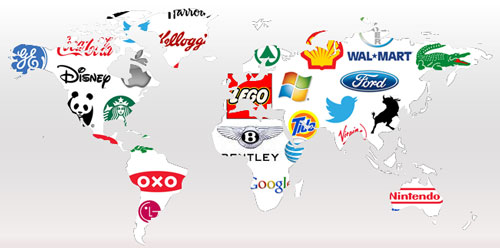
The international market has considerably expanded in the last 50 years. The products reaching consumers now are more hybrid, their parts made in different countries. Companies like Coca Cola, Sony and Gucci are not identified with any specific country because they have established a strong hold on the global market.
To excel in a foreign market, a thorough economic analysis is required. According to economists, the levels of economic development vary widely around the world. Standard of living depends on factors such as per capita income, quality and availability of work, poverty levels, condition and affordability of housing, amount of work needed to buy necessities, etc. These facts affect the size of a target market and the potential prospects it may have.

Countries with Potential Business Opportunities
From an economic standpoint, there are four types of countries where there are potential business opportunities for foreign investors. The developed, less developed and newly industrialized countries prove to be affluent markets for businesses.
The individual standard of living in developed countries is better than the less developed countries. With a higher per capita income, these people have more to spend. For instance, Americans prefer to purchase a new item instead of getting an old one repaired. This characteristic makes it an affluent market for investors.
The newly industrialized countries have many opportunities for investors, but their business environment differs from that of developed countries.
The toughest business markets are probably the less developed or developing countries that speak foreign languages. These markets have millions of potential consumers. This is why investors feel tempted to take them up as a challenge. But these less developed countries lack a proper legal framework to facilitate investment and will require certified translators who are proficient in the local dialects. Further, many of these markets are politically unstable, lawlessness being their major problem.
To establish a strong business foothold in these countries, local partners usually are engaged to devise exclusive business strategies for each target locale. However, companies do thrive in these less developed countries. Their examples are proof that even the most challenging business markets have something to offer to those seeking business opportunities abroad.
The former communist economies like Russia and China present a fourth type of market. Economists term them a “business novelty” with their huge industry and international consumption of goods and services. Utility is the keyword to success in these markets.
How to Go About Market Analysis
Investors planning for a business venture overseas should conduct thorough market research. This research includes data collection and numerous surveys. Apart from this, international managers must look at their target market’s consumption of goods and services.
It is very important to know what type of goods and services are consumed by a country. The investor must also think of contingency plans in case the disposable income of the consumers falls below average.
The biggest mistake which even the most successful companies make is to push their products abroad without considering the cultural, social and environmental differences between cultures. Because China is such a controlled market, it can be very difficult for new investors. A few big companies which botched their attempts to attract foreign consumers include Best Buy, ebay and Mattel.
Partner with Locals–Get a Feel for the Market
It is very important to communicate with local partners who are familiar with the business environment of the target locale. This partnership must be a win-win relationship. The locals will only be interested if the partnership is mutually beneficial. Development projects will definitely interest the local government and your local partners.
You must never let language barriers become a handicap while entering the global business domain. Hiring the most efficient translation company to assist you in your negotiations with the local partners is money well spent.
By Sarah Detlef
Sarah Detlef has been in the language translation business for over two decades. Currently, she is the president of 24 Hour Translation Company. 24HourTranslation.com is a certified woman owned, U.S. disabled veteran owned company. Join her on facebook and twitter.







